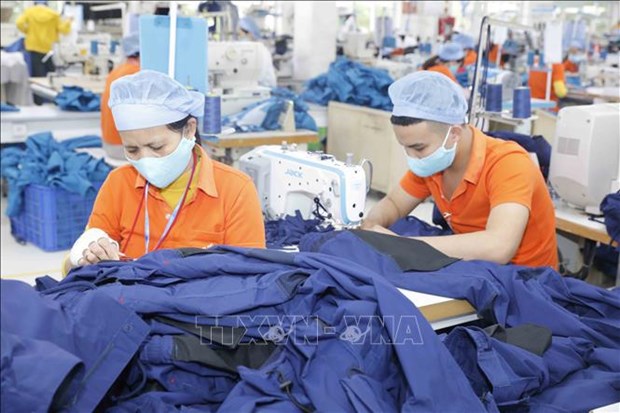 Economy
Economy


|
| A garment and textile production line. The sector will continue calling for investment in the material supply chain, building sale solutions, and developing automation. VNA/VNS Photo |
HÀ NỘI — Vietnamese apparel firms have been busy so far this year completing orders, toward achieving the goal of about US$47 billion in exports this year on the back of incentives brought about by free trade agreements.
Businesses also plan to invest in modern technology to improve business efficiency and workers' incomes.
Global apparel demand is forecast to decrease by nearly 5 per cent annually this year to around $700 billion, resulting in a decrease of 25-27 per cent in the number of orders.
Major importers of Vietnamese apparel such as the US, China and the Republic of Korea have shown signs of lower demand since October 2022. Meanwhile, the European Union and Japan still maintained positive growth but it was lower than in previous months.
Chairman of the Việt Nam Textile and Apparel Association (VITAS) Vũ Đức Giang said in order to achieve sustainable development, the sector will continue calling for investment in the material supply chain; building sale solutions; and developing automation, digital governance, a transparent business environment and high-quality workforce.
He admitted that the sector is facing intense competition from Bangladesh, India and Indonesia, especially products with simple designs.
In the near future, about 30-35 per cent of apparel makers will suffer from a shortage of orders while the remainder will face price pressure. However, the sector is still able to produce mid and high-end products which is one of its advantages to accelerate exports, he said.
Domestic textile firms also suggested the State adjust policies and mechanisms flexibly, especially those related to credit and foreign exchange rates to improve their competitiveness. — VNS




